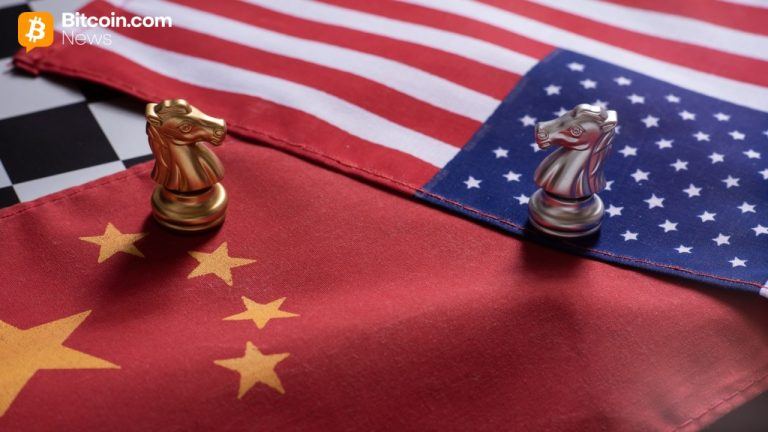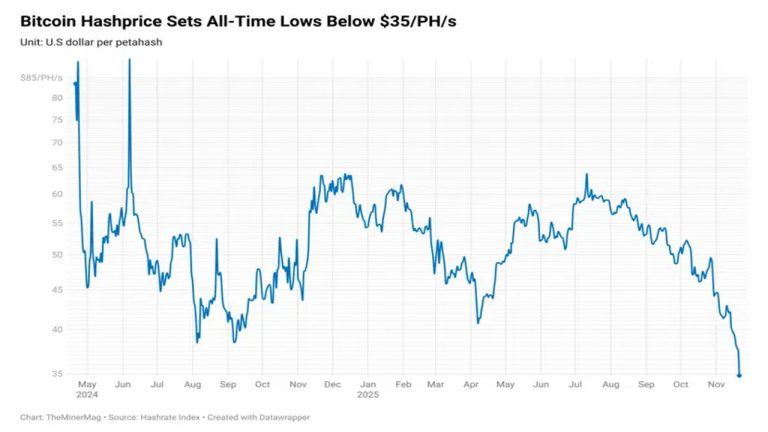Fed pauses interest rates, but Bitcoin options data still points to BTC price downside
3 min read
Bitcoin’s price has been pinned below $26,300 since June 10, reflecting a 14.8% correction in two months. Meanwhile, the Nasdaq tech stock market index gained 13.6% in the same period, indicating that investors are not exactly fleeing to the safety of cash and short-term debt. In fact, the demand for United States government bonds has been declining for the past six weeks.
The yield on two-year U.S. Treasurys, for example, increased from 3.80% on May 4 to 4.68% on June 14. Lower demand for debt instruments increases payouts, resulting in a higher yield. If the investor thinks that inflation will continue above target, the tendency is for those participants to demand a higher yield when trading bonds.
The U.S. Treasury is set to issue more than $850 billion in new bills between June and September. As additional debt issuance tends to cause higher yields, the market expects increased borrowing costs for families and businesses. Still, that does not explain why investors have been flocking to tech companies but avoiding Bitcoin (BTC), as depicted by the past two-month performance.
Eight consecutive weeks of crypto fund outflows
According to CoinShares’ latest “Digital Asset Fund Flows Report,” the sector’s investment product outflows amounted to $88 million in the week ending on June 10. The substantial drawdown added to the ongoing eight-week streak of outflows, which now total $417 million.
The eight-week cumulative outflows for Bitcoin reached $254 million, representing approximately 1.2% of the total assets under management. Analysts at CoinShares have attributed this trend to monetary policy considerations, as interest rate hikes show no signs of slowing down, prompting investors to remain cautious.
Bitcoin has been trying to reclaim the $27,500 support for the past two weeks, but that might be harder than expected given the upcoming $600 million weekly options expiry on June 16.
A brief Bitcoin pump above $27,000 made bulls giddy
It is worth noting that the actual open interest for the options expiry will be lower since bulls concentrated their bets above $27,000. These traders likely got excessively optimistic after Bitcoin’s price gained 8% on June 6, erasing the losses that drove BTC down to $25,400.
The 0.73 put-to-call ratio reflects the imbalance between the $350 million in call (buy) open interest and the $250 million in put (sell) options.
However, if Bitcoin’s price remains near $26,000 at 8:00 am UTC on June 16, only $27 million worth of these call (buy) options will be available. This difference happens because the right to buy Bitcoin at $27,000 or $28,000 is useless if BTC trades below that level on expiry.
Related: Bitcoin ‘far larger’ than Binance or Coinbase, says Jan3 CEO: BTC Prague 2023
Bulls need Bitcoin price at $26,500 to avoid a $100 million loss
Below are the three most likely scenarios based on the current price action. The number of options contracts available on June 16 for call (bull) and put (bear) instruments varies depending on the expiry price.
The imbalance favoring each side constitutes the theoretical profit:
- Between $24,000 and $25,000: 0 calls vs. 6,100 puts. Bears are in total control, profiting $145 million.
- Between $25,000 and $26,500: 1,000 calls vs. 4,400 puts. The net result favors the put (sell) instruments by $100 million.
- Between $26,500 and $27,000: 2,200 calls vs. 2,800 puts. The net result is balanced between call and put instruments.
This crude estimate considers the call options used in bullish bets and the put options exclusively in neutral-to-bearish trades. This oversimplification disregards more complex investment strategies.
Still, traders should be cautious as the bears are currently in a better position for Friday’s weekly options expiry, favoring negative price moves. Thus, an eventual sharp correction below $25,000 should not be discarded.
This article is for general information purposes and is not intended to be and should not be taken as legal or investment advice. The views, thoughts, and opinions expressed here are the author’s alone and do not necessarily reflect or represent the views and opinions of Cointelegraph.
This article does not contain investment advice or recommendations. Every investment and trading move involves risk, and readers should conduct their own research when making a decision.







